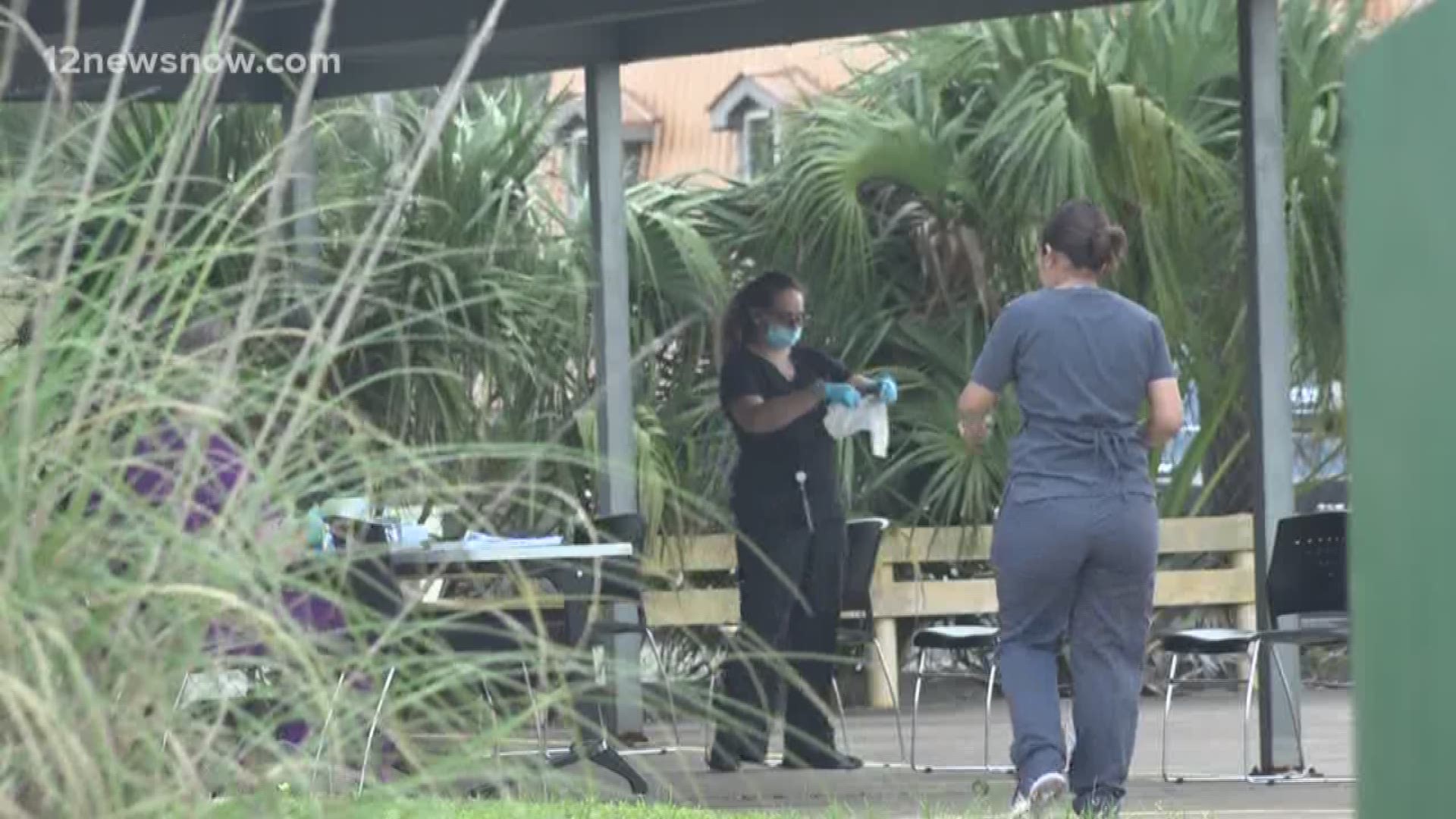BEAUMONT, Texas — Workers at Beaumont's Legacy Community Health say they've seen a steady stream of people asking to be tested for the coronavirus.
Based on the CDC guidelines, some people just don't qualify for the test. The tests are needed for high priority patients.
In the 24 hours since the facility started collecting samples, a spokesperson says 53 have been sent off for testing.
For Josh Davis, the senior director of development, the work done there is personal. Beaumont is home. He wants to do his part to get patients answers.
"We sign up to work in health care to make a difference for our community," Davis said.
COVID-19 testing isn't on demand. It will take a few days to get results.
At Legacy, there's a process that has to be followed.
First, you're encouraged to call ahead. The phone number is 409-242-2525.
"If you don't have to get out, don't get out. Call the number first. Talk to one of our nurses. They will tell you if you need to come to the clinic or not to pursue further screening," Davis said.
If you are told to come in, patients will be screened again. Those who meet the COVID-19 testing criteria will enter this tent for a sample to be collected.
Two swabs will be taken from your nose and throat--and shipped to a lab.
The test takes 3 to 4 days, and then the results are sent back.
Right now, Davis says mornings are the busiest time.
When 12News stopped by just before noon, there was a very short wait.
Staff members are planning for volume to increase.
"We just ask people if they are coming in to be screened, be patient with us. We are doing the best so that we can provide the best care for you,"
Testing is available weekdays from 8 in the morning until 5 p.m. outside the Legacy Community Health Clinic at 450 North 11th St. in Beaumont.
Coronavirus symptoms
The symptoms of coronavirus can be similar to the flu or a bad cold. Symptoms include a fever, cough and shortness of breath, according to the Centers for Disease Control.
Most healthy people will have mild symptoms. A study of more than 72,000 patients by the Centers for Disease Control in China showed 80 percent of the cases there were mild.
But infections can cause pneumonia, severe acute respiratory syndrome, kidney failure and even death, according to the World Health Organization. Older people with underlying health conditions are most at risk.
The CDC believes symptoms may appear anywhere from two to 14 days after being exposed.
RELATED: VERIFY: No, members of Congress who are self-quarantined for coronavirus cannot vote remotely
Human coronaviruses are usually spread through...
- The air by coughing or sneezing
- Close personal contact, such as touching or shaking hands
- Touching an object or surface with the virus on it, then touching your mouth, nose or eyes before washing your hands.
Help stop the spread of coronavirus
- Stay home when you are sick.
- Eat and sleep separately from your family members
- Use different utensils and dishes
- Cover your cough or sneeze with your arm, not your hand.
- If you use a tissue, throw it in the trash
Lower your risk
- Wash your hands often with soap and water for at least 20 seconds. If soap and water are not available, use an alcohol-based hand sanitizer.
- Avoid touching your eyes, nose, and mouth with unwashed hands.
- Avoid close contact with people who are sick.
- Clean and disinfect frequently touched objects and surfaces.
- If you are 60 or over and have an underlying health condition such as cardiovascular disease, diabetes or respiratory illnesses like asthma or COPD, the World Health Organization advises you to try to avoid crowds or places where you might interact with people who are sick.

